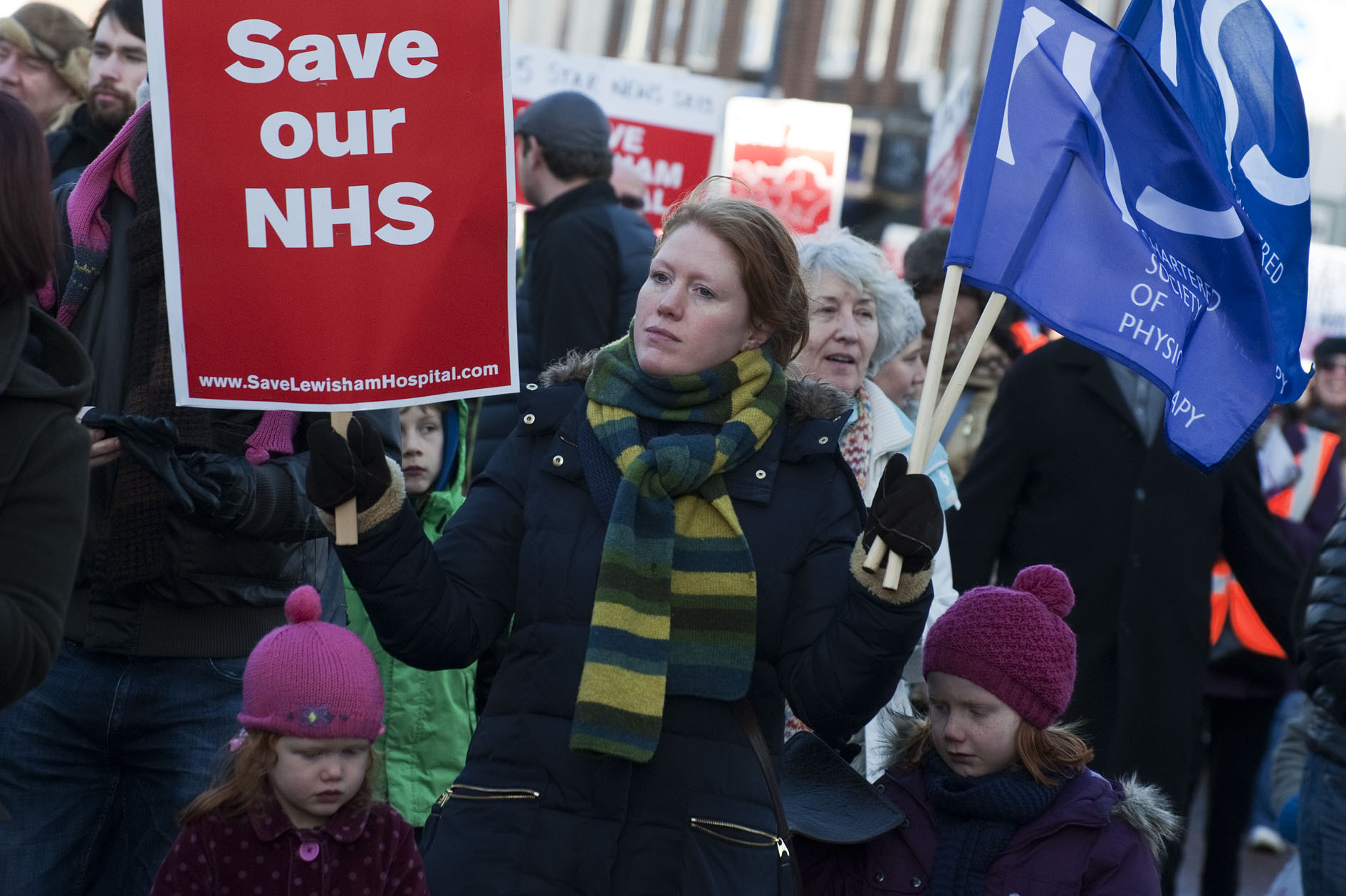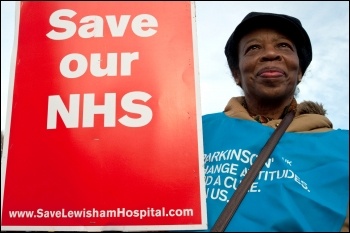Roger Shrives
The main road outside Lewisham Hospital was noisier than usual on 31 January as car, bus and lorry drivers beeped their horns in support of angry protesters.
Tory health minister Jeremy Hunt had just announced that Lewisham hospital accident and emergency department and maternity services would remain open but face huge cuts.
South London Healthcare Trust (SLHT) which runs hospitals in Woolwich, Bromley and Sidcup is also being dissolved, leading to more massive cuts, closures, job losses and cancelled operations.
25,000 people had joined a protest march in Lewisham only five days earlier. This massive community resistance clearly had some effect as the government appointed special administrator Matthew Kershaw had been considering closing these services completely.
Kershaw had argued that the A&E, staffed by GPs and nurses, should be replaced by an urgent care unit that could only deal with less seriously ill people.
Hunt, under pressure from the marvellous protests, said that Lewisham A&E would remain as a smaller service but with the aim of more serious cases being eventually shuffled off out of Lewisham. The plan has been described as a ‘glorified 24/7 GP practice’.
NHS workers are angry at these serious cuts, so are the patients of today and tomorrow. All these life-threatening attacks are due to financial problems at SLHT which, like many hospital trusts, ran up against the Private Finance Initiative (PFI), where private firms like banks and construction companies get to own and run hospitals – interest repayments in the trust have reached £61 million a year!
The bosses have started a war over the NHS. The working class should lead the fightback but more than petitions, protests and demos are needed. Growing numbers of health workers are calling for industrial action such as strikes.
This is a stay of execution but not a reprieve. The opposition has been loud but, so far, muted from the labour movement’s leaders.
A concerted programme of strikes, community protest and demonstrations – including a national protest against NHS ‘reforms’ – could beat the Con-Dems’ local and national plans for the NHS.










